Publications
Articles, publications, books, tools and multimedia features from the U.S. Institute of Peace provide the latest news, analysis, research findings, practitioner guides and reports, all related to the conflict zones and issues that are at the center of the Institute’s work to prevent and reduce violent conflict.
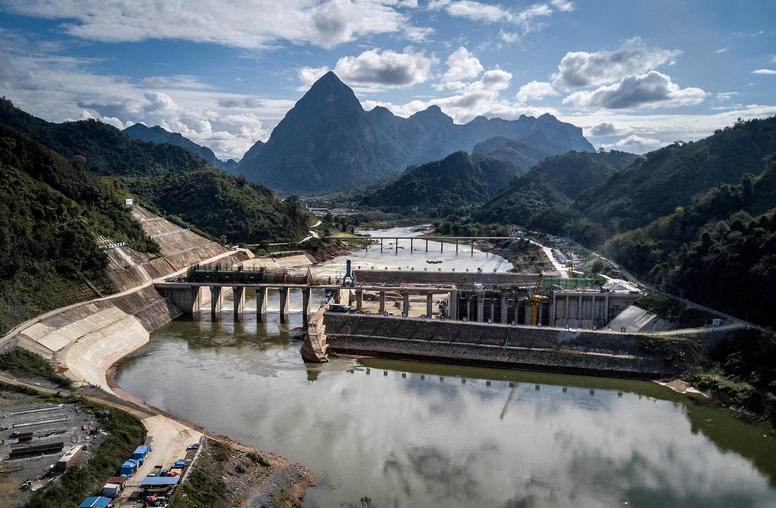
How to Balance Hydropower and Local Conflict Risks
In the face of rapidly expanding solar and wind energy technology, it’s easy to forget about hydropower. Hydropower was first harnessed to turn mills and grind grain, but today it generates more electricity than any other source of renewable energy. But while dams can spur development, help manage water resources and improve access to affordable electricity, their impacts on local communities and the environment can have a dark side.
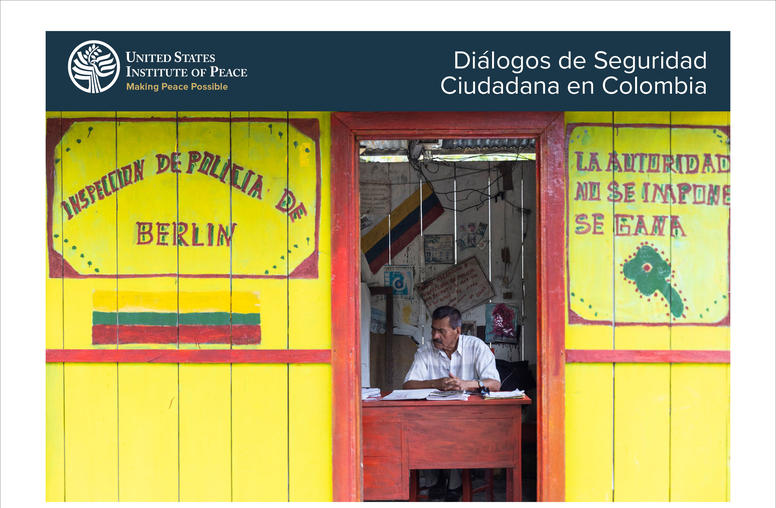
Diálogos de Seguridad Ciudadana en Colombia
La firma del Acuerdo de Paz del 2016 entre el gobierno colombiano y las FARC-EP abrió nuevas ventanas de oportunidad para transformar paradigmas de seguridad que respondan mejor a las necesidades y prioridades de la ciudadanía. Sin embargo, la implementación equitativa del Acuerdo en zonas rurales del territorio sigue siendo un desafío.
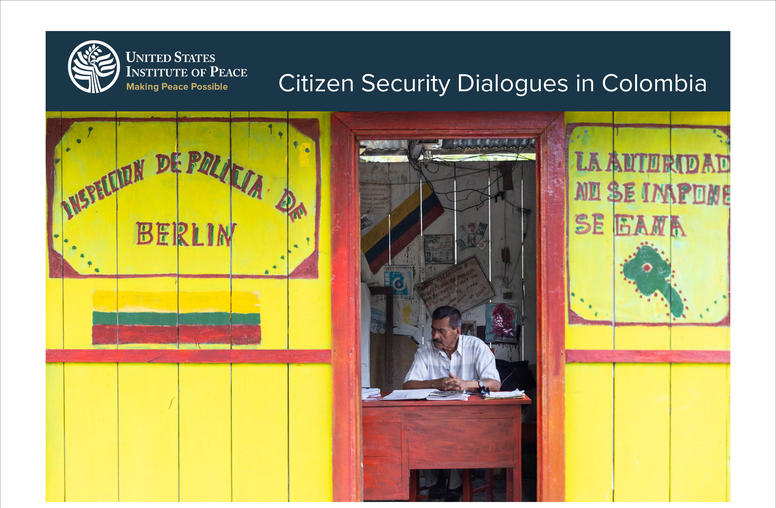
Citizen Security Dialogues in Colombia
The signing of the 2016 peace agreement between the Colombian government and the FARC-EP opened new windows of opportunity to transform security paradigms that better respond to the needs and priorities of citizens. However, implementing the Agreement and ensuring that its provisions are equitably implemented in rural areas of the territory remains an elusive challenge.

Colombia’s New Administration Raises Hopes for ‘Total Peace’
Hopes for lasting peace in Colombia are soaring. Last month, Gustavo Petro and Francia Márquez prevailed in Colombia’s runoff presidential election and will lead the country’s first-ever progressive government, as president and vice president, respectively. Their historic victory culminates an electoral cycle marked by a resounding rejection of Colombia’s establishment elites. Petro’s proposals for what he has coined “Total Peace” offer an ambitious approach to negotiating with armed groups, implementing prior peace accords, and pursuing national unity amid debilitating socio-political polarization. The country stands before an undeniable opportunity to lay the foundation to end its six-decade conflict, even if subsequent governments will have to sustain these efforts to truly reap the long-term benefits.

Steve Hege on Colombia's Presidential Runoff Vote
With no establishment candidate left, Colombia's June 19 presidential runoff reflects voters' perception that "things [on] the ground are quite bleak" as the remaining candidates "promise significant degrees of change for Colombia and its relationship with the United States," says USIP’s Steve Hege.
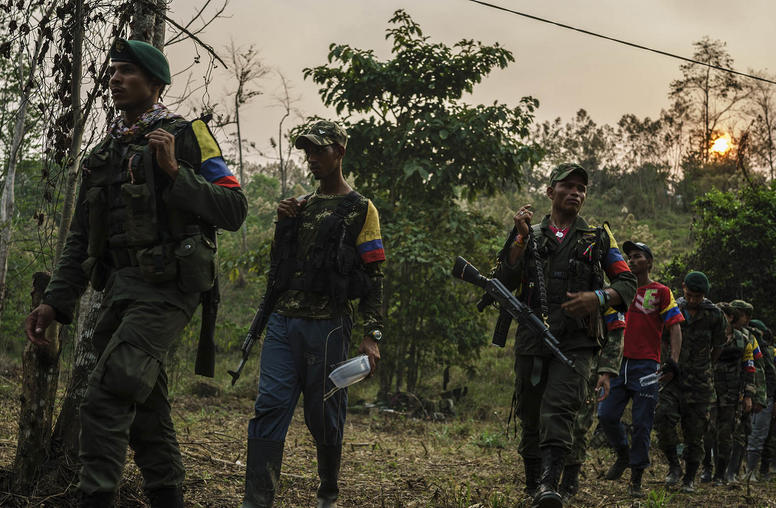
Mounting Security Challenges Await Colombia’s Next President
In the first round of Colombia’s presidential elections, long-standing opposition leader Gustavo Petro and newly emerged outsider Rodolfo Hernández both handily defeated the conservative establishment candidate Federico Gutiérrez. The latter’s third-place finish signals Colombians’ resounding rejection of the country’s status quo and a rebuke of the political establishment and predominant elites.
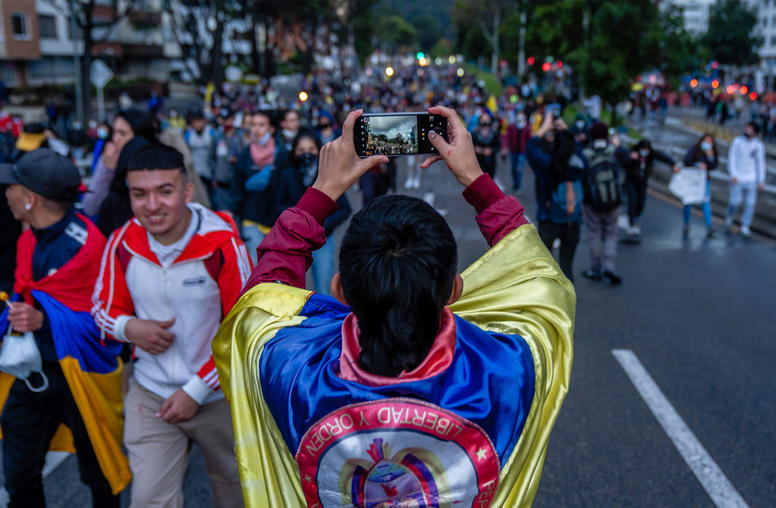
Vice-Presidential Candidates Lay Out Visions for Colombia’s Future
Colombia is on the precipice of historic presidential elections amid a backdrop of significant social unrest, deepening polarization and the escalation of the country’s six-decade old armed conflict. Last year’s nationwide mass protests sprung up over worsening racial and socioeconomic inequality in most of the country’s major urban metropolitan centers, and a heavy-handed police response only served to worsen the crisis.
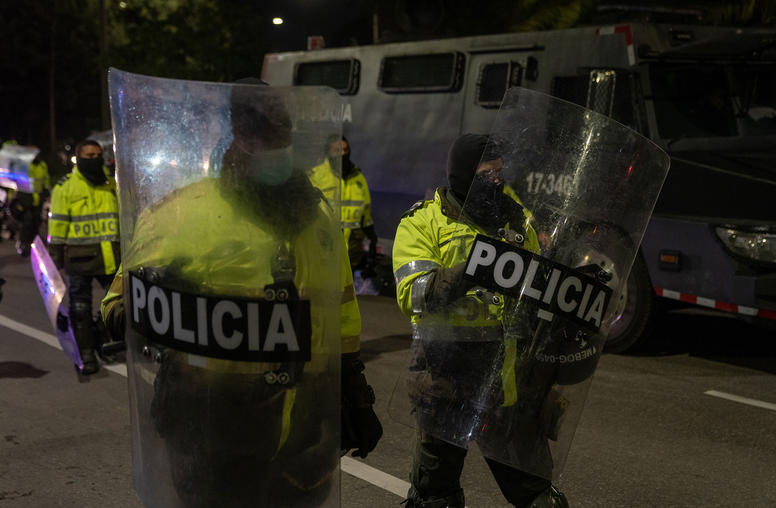
Colombia Police Reform: The Critical Need to Include Rural Forces
The Colombian government, seeking to reform its National Police in a time of security challenges and mass protests, has focused on big-city units that sit in the national spotlight. While the reform efforts are generally praiseworthy, the emphasis on urban areas creates the risk of losing sight of the country’s rural regions — places where guerrillas and other armed actors hold sway, and the fate of peace efforts will ultimately be determined. The resolve and capacity of rural police and courts to meet the needs of citizens in these zones will be critical to achieving meaningful and lasting peace.

Colombia: U.S. Aids Peace by Lifting ‘Terrorist’ Label From FARC
The U.S. government has opened opportunities to strengthen the implementation of the fragile 2016 peace accord and stem rising conflict in Colombia by ending its designation of the former Colombian guerrilla movement, FARC, as a terrorist group.

Keith Mines on Secretary Blinken’s Trip to Colombia
As Secretary of State Antony Blinken travels to Colombia, USIP’s Keith Mines notes there is still work to be done in implementing and expanding the 2016 peace agreement with the FARC insurgency, saying that “consolidating the peace in a place like Colombia was almost as hard as fighting the war itself.”